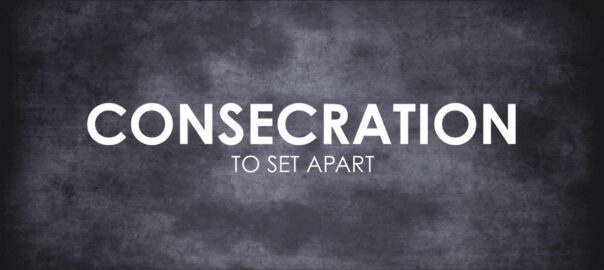
Devout Christians and thoughtful people of all worldviews are aware that there is genuine conflict between good and evil in our world. At the same time, these forces find their way into human hearts and we see contradictory impulses in ourselves and others. Compassion for the downtrodden can devolve into control over too many areas of life. Freedom can become anarchistic hedonism. And good and evil are often veiled by political ideology and impulses toward power.
In the midst of real spiritual conflict, we must participate in the public square, make prudential decisions, and be good neighbors with those who differ deeply. There is one resource too often overlooked in our navigation of the rapids of conflict: courageous, fervent, genuine, and humble prayer for the very people we disagree with the most.
When Jesus called his followers to “pray for those who persecute you” (see Matthew 5:43-48), and St. Paul admonished followers of Jesus to, “Bless those who persecute you; bless and do not curse” they were not offer good advice for irritating moments – they were commanding a completely different disposition.
How do practice this godly attitude when we feel under assault all the time? What about the prophets who denounced evil and called out abuses of power? Good questions…and both are answered by a posture and practice of intercessory prayer. We forget that the prophets railed against idolatry, immorality, and injustice with tears, calling on God’s people to return to the Lord and have new hearts (Hosea 14). Of course, we stand against the slaughter of innocents through abortion. We must advocate for the marginalized and the voiceless, calling for systemic changes that open opportunities to flourish. But the power for change begins on our knees.
Our Almighty and Holy Lord had decided that our prayers matter as we are invited to join Jesus on his mission of reconciliation and restoration (Isaiah 61; 2 Corinthians 5:11-6:2). Jesus wanted prayer support in Garden of Gethsemane as the Passion reaches its climax in a coming crucifixion (Matthew 26:40-41; Luke 22:39-46). The Apostle Paul appreciated his friend’s prayers as carried out his mission (Philippians 1:19). Where do we start? Here are four insights for our prayers that will change our hearts and be used by the Lord to work in the lives of others.
First, we must turn our anger into active prayer, processing our reactions and choosing blessing over cursing. This is not easy! Every day we hear and see outrageous assertions and events and our first impulse is invective…and frankly, we think they deserve it! But. Changing the world begins with our own hearts and our choices to bless, pray for, and desire the best for those we are most upset with. Starting with our own inner examination of attitudes and motives, we are then positioned for influence.
Second, we are never the arbiter of anyone’s eternal destiny, but we can discern good and evil, renouncing wrong actions and beliefs with a desire for change in those who oppose us. Put simply, we must NOT say, “S/he is a jerk” or “S/he is hopelessly stupid”, etc. We CAN say, “S/he is wrong on this policy” or “I oppose what they are doing” WHILE we pray for them. Historically, this is one key reason President Trump was not re-elected in 2020. Some of his policies were wise and worked well, but his character, especially his personal insults, overtook competence and in reaction, we have our current leadership.
Third, we must believe that God can change hearts. We must desire forgiveness for ourselves and others and affirm that the Lord can redeem even current enemies of the truth. How long has it been since we sincerely prayed, “O Lord, open the eyes of those in power and help them see clearly”? This is more than agreeing with us – it is a deep desire to see all align with God’s kingdom.
Fourth, we must keep on praying, even when the tide rises against us. We may still experience injustice and even overt persecution. The key is being persecuted for humble obedience, not hubris and obnoxiousness! Yes, the public square is unfair and tilted against the truth of Christ. Jesus told us such days would come (John 16). St. Paul also mentioned the inversion and perversion of love and truth that can arise in a hostile world (Romans 1:18-32; I Timothy 4:1-3; 2 Timothy 3:10-13). We do not have a guarantee of worldly success. We do, however, have an eternal hope that animates our current obedience, knowing that all will be well in the end (Romans 8:26-39).
This call for prayer is not a retreat from activism. It is the animating power underneath our pronouncements, the heavenly resource that will strengthen our wise efforts. We love testimonies of transformation as new converts discover liberation in Christ. Will we desire this freedom for all around us?




